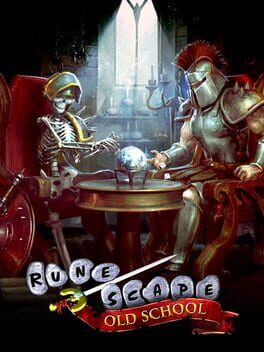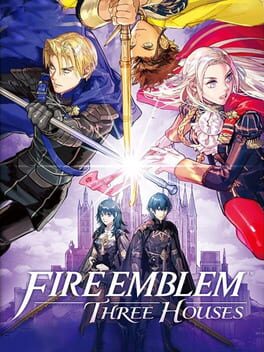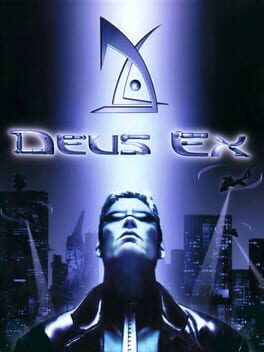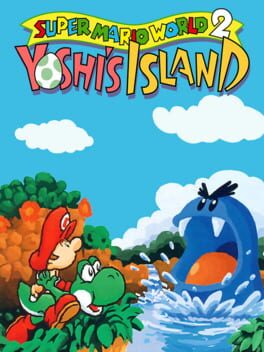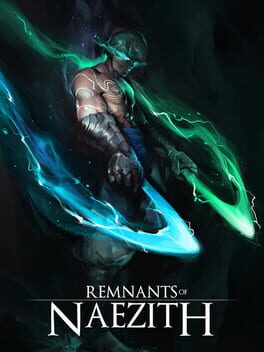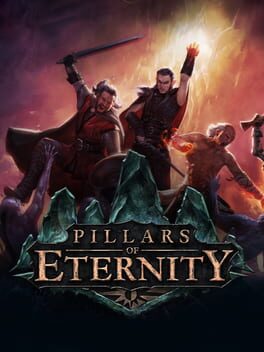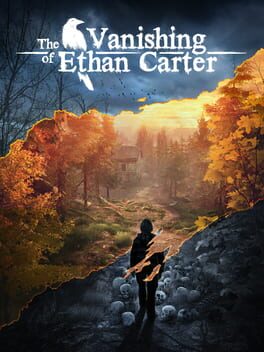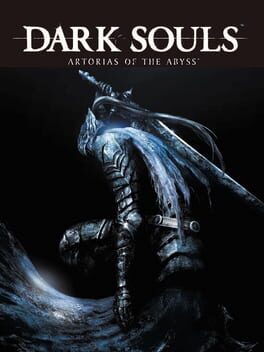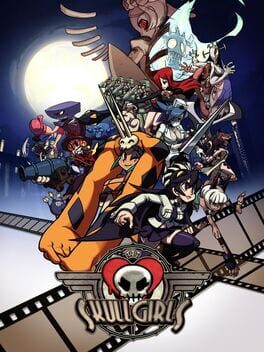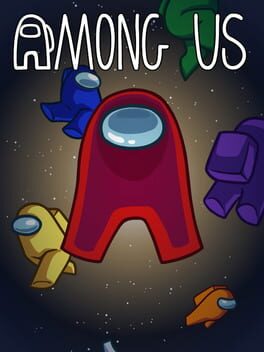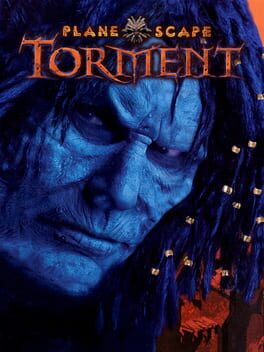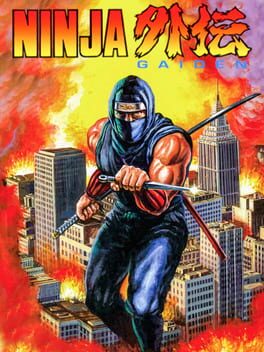synthezoid
2013
Some games don't respect your time. This game breaks your time over its knee and says "life is meaningless, your time never had value, and you were a fool to think otherwise." It's a minimum-wage job with more steps and less pay. Literally the only good this game has ever done the world is put food on the table for some savvy Venezuelans. I won't pretend to think otherwise. (https://www.polygon.com/features/2020/5/27/21265613/runescape-is-helping-venezuelans-survive)
This review contains spoilers
(Beat Crimson Flower on Hard.)
Three Houses has one of the more interesting Fire Emblem stories by virtue of actually having themes (and surprisingly ambitious ideas about class, religion, and war--though I don't know if every path is quite as interesting or as complex as the Black Eagles') and branching paths that make at least a couple of your choices genuinely matter. However, exploration of these big ideas is occasionally too spread out by repetitive story beats. Take a shot for every "here's a never-before-mentioned place of strategic significance, we need it!" mission. These less dramatic moments are at least elevated by a charming cast of characters. Even if they lean into archetypal anime tropes a bit too much, they remain memorable, and reading through Support conversations is always a highlight--so long as you don't have so many back-to-back that you get sick of them.
Story missions are interspersed with vignettes with gorgeous, pseudo-medieval art. I honestly wish all of the game's portraits and designs were done in this style; it stands out in a powerful way. Still, the clean and decidedly modern anime-style art the game ended up with looks good in its own right.
The bulk of your time, however, will be spent on leisurely Persona-style social and teaching sequences at the monastery. These start out charming, but by the end, they start to feel like going through the motions. There is very little unique content here; it's all just a few simplistic mechanics, repeated dozens of times. This only accentuates how bare it really is. You might get to read a few dialogue boxes where characters comment vaguely on the current narrative goings-on. You might find a lost item, which involves guesstimating who might have lost it (god forbid you be able to ask other students "who do you think this might belong to?" to get to know the characters better) or, if you care enough to even bother, just asking everyone until you get it right. You might have teatime, where you simulate having a conversation with someone to raise your bond. This sounds neat--more conversations with dialogue choices, great, even if it is just a frivolous slice-of-life minigame. Except, in contrast to the support conversations, teatime offers no actual conversation to read, just the suggestion of one. It's not awful, but it all rings slightly hollow. It clearly wants to crib from content-rich JRPGs with life-sim elements like Persona. It's been a while since I played Persona 5, so maybe I'm misremembering, but I recall the depth and quality of the side content being worlds beyond Three Houses' offerings, even if Atlus's games have their fair share of padding too. It's cool to see that Fire Emblem tried something new, but it seems like there was a mismatch between their scope and their resources here.
You can automate these parts, but given that you miss out on making choices which meaningfully impact your units' performance during the fun part of the game, it just feels bad to do so. You can also spend your free time playing side battles, which are typically only interesting when tied to a character's backstory. Otherwise, they feel like shameless grinding opportunities when they're easy, and time-wasters when they're not. Three Houses has about 25 hours of the best Fire Emblem game ever in it, but the game is a generous 60 hours.
Within missions, the gameplay is as smooth as ever. The level design isn't always the most interesting, but it's consistently serviceable. Fire Embem's famous "weapon triangle"--axe beats lance beats sword beats axe--is technically gone, but it's just replaced with optional abilities that achieve nearly the same thing, so it's only sort of gone. The abilities themselves can be a bit overwhelming (and it took me longer than I'd like to admit to realize you can swap them out for new ones)--there's a lot of room for character customization and optimization, but without actually learning how the formulas for the different stats work, it's all a bit much to keep track of. I'm sure there's plenty to chew on for the hardcore challenge runners out there, but for those of us who just enjoy fiddling around with the classes and abilities that look fun, I'm not sure if all those options meaningfully improved my experience, since I never felt encouraged to experiment and actually learn how best to use them.
Monsters are one of the big new mechanics, and they kind of suck. Occasionally, they make for interesting strategic choices, but they're often just annoying bags of hit points and gambit tollbooths. They do require you adapt your strategy, but in my experience, that often just meant "do everything in your power to kill them in one turn, and if you can't, play extremely conservatively until you can." After their introduction, I don't think I ever saw a monster without groaning.
Divine Pulse feels like a great addition that reflects how people actually play Fire Emblem--sure, characters can die, but I will reload 99% of the time that happens. The other 1% is when it happens to a character I don't love in the final mission (rest in peace Hubert, Alois, and Ferdinand, who died in the name of killing the pope). Now, I don't have to reload. I can just get back to having fun in seconds rather than minutes (though I wish I didn't have to skip to my turn to use it every time a non-essential character dies; it's a difference of seconds, but I felt every one of those seconds). The later levels are balanced around having over a dozen or so rewinds, which is objectively fair, but more annoying than interesting in play. The abundance of unpredictable reinforcements and monsters in this stretch of the game feels like a deliberate attrition on Pulses. I think I would prefer a lighter touch on difficulty with more limited rewinds.
Still, for as many little issues as I have, Fire Emblem is fundamentally fun, and this game, for better and worse, is a whole lot of Fire Emblem. I would love to see a title with Three Houses' ambition and depth paired with the tightness (and the stylish pixel art, while I'm asking for things that will never happen) of the GBA games. Until then, this game will have to do.
Three Houses has one of the more interesting Fire Emblem stories by virtue of actually having themes (and surprisingly ambitious ideas about class, religion, and war--though I don't know if every path is quite as interesting or as complex as the Black Eagles') and branching paths that make at least a couple of your choices genuinely matter. However, exploration of these big ideas is occasionally too spread out by repetitive story beats. Take a shot for every "here's a never-before-mentioned place of strategic significance, we need it!" mission. These less dramatic moments are at least elevated by a charming cast of characters. Even if they lean into archetypal anime tropes a bit too much, they remain memorable, and reading through Support conversations is always a highlight--so long as you don't have so many back-to-back that you get sick of them.
Story missions are interspersed with vignettes with gorgeous, pseudo-medieval art. I honestly wish all of the game's portraits and designs were done in this style; it stands out in a powerful way. Still, the clean and decidedly modern anime-style art the game ended up with looks good in its own right.
The bulk of your time, however, will be spent on leisurely Persona-style social and teaching sequences at the monastery. These start out charming, but by the end, they start to feel like going through the motions. There is very little unique content here; it's all just a few simplistic mechanics, repeated dozens of times. This only accentuates how bare it really is. You might get to read a few dialogue boxes where characters comment vaguely on the current narrative goings-on. You might find a lost item, which involves guesstimating who might have lost it (god forbid you be able to ask other students "who do you think this might belong to?" to get to know the characters better) or, if you care enough to even bother, just asking everyone until you get it right. You might have teatime, where you simulate having a conversation with someone to raise your bond. This sounds neat--more conversations with dialogue choices, great, even if it is just a frivolous slice-of-life minigame. Except, in contrast to the support conversations, teatime offers no actual conversation to read, just the suggestion of one. It's not awful, but it all rings slightly hollow. It clearly wants to crib from content-rich JRPGs with life-sim elements like Persona. It's been a while since I played Persona 5, so maybe I'm misremembering, but I recall the depth and quality of the side content being worlds beyond Three Houses' offerings, even if Atlus's games have their fair share of padding too. It's cool to see that Fire Emblem tried something new, but it seems like there was a mismatch between their scope and their resources here.
You can automate these parts, but given that you miss out on making choices which meaningfully impact your units' performance during the fun part of the game, it just feels bad to do so. You can also spend your free time playing side battles, which are typically only interesting when tied to a character's backstory. Otherwise, they feel like shameless grinding opportunities when they're easy, and time-wasters when they're not. Three Houses has about 25 hours of the best Fire Emblem game ever in it, but the game is a generous 60 hours.
Within missions, the gameplay is as smooth as ever. The level design isn't always the most interesting, but it's consistently serviceable. Fire Embem's famous "weapon triangle"--axe beats lance beats sword beats axe--is technically gone, but it's just replaced with optional abilities that achieve nearly the same thing, so it's only sort of gone. The abilities themselves can be a bit overwhelming (and it took me longer than I'd like to admit to realize you can swap them out for new ones)--there's a lot of room for character customization and optimization, but without actually learning how the formulas for the different stats work, it's all a bit much to keep track of. I'm sure there's plenty to chew on for the hardcore challenge runners out there, but for those of us who just enjoy fiddling around with the classes and abilities that look fun, I'm not sure if all those options meaningfully improved my experience, since I never felt encouraged to experiment and actually learn how best to use them.
Monsters are one of the big new mechanics, and they kind of suck. Occasionally, they make for interesting strategic choices, but they're often just annoying bags of hit points and gambit tollbooths. They do require you adapt your strategy, but in my experience, that often just meant "do everything in your power to kill them in one turn, and if you can't, play extremely conservatively until you can." After their introduction, I don't think I ever saw a monster without groaning.
Divine Pulse feels like a great addition that reflects how people actually play Fire Emblem--sure, characters can die, but I will reload 99% of the time that happens. The other 1% is when it happens to a character I don't love in the final mission (rest in peace Hubert, Alois, and Ferdinand, who died in the name of killing the pope). Now, I don't have to reload. I can just get back to having fun in seconds rather than minutes (though I wish I didn't have to skip to my turn to use it every time a non-essential character dies; it's a difference of seconds, but I felt every one of those seconds). The later levels are balanced around having over a dozen or so rewinds, which is objectively fair, but more annoying than interesting in play. The abundance of unpredictable reinforcements and monsters in this stretch of the game feels like a deliberate attrition on Pulses. I think I would prefer a lighter touch on difficulty with more limited rewinds.
Still, for as many little issues as I have, Fire Emblem is fundamentally fun, and this game, for better and worse, is a whole lot of Fire Emblem. I would love to see a title with Three Houses' ambition and depth paired with the tightness (and the stylish pixel art, while I'm asking for things that will never happen) of the GBA games. Until then, this game will have to do.
2000
Hong Kong is one of the best levels I've ever encountered in any game, ever.
The rest of Deus Ex is all just as strong, too.
My non-lethal run started out as a teeth-pulling, save-scumming stealth game (still fun, even if a bit basic and slow as such) and gradually evolved into ballistic-armoring, speed-boosting, and occasionally straight up invis-walking past enemies. The progression that the augmentations afford is incredible and empowering, but never so strong that one approach feels obviously superior--a tough proposition even among the best immersive sims. Admittedly, if you're not feeling creative, some newer Arkane games occasionally run into this thanks to the omnipresent strength of blinking around. System Shock 2, while a master class in atmosphere, doesn't really have that many viable playstyles. Thief is an incredible stealth game, and I love it for that, but Deus Ex director Warren Spector had bigger ideas: he wished you didn't have to play Thief as a stealth game in the first place. Deus Ex is the first great, even masterful execution of that idea.
Another thing that is striking about Deus Ex, even to this day: almost all of the meaningful choices in the game, where possible, are presented through mechanics, systems, and open-ended situations rather than menus, text boxes, or button prompts. Want to kill or spare a character? Just do it. (It might not be easy, but that only makes it more immersive.) Want to avoid learning the passcode to this door? Stack some boxes to climb into the window. Or do whatever else you want. Only you can judge yourself. Try to stick to the approach you feel is right, or experiment wildly. It's all here. It's all tight, atmospheric, and--as clunky as the stealth, shooting, and AI can seem--it all works together as a brilliant clockwork contraption of mechanics, simulation, and downright satisfying game design.
0451/10
The rest of Deus Ex is all just as strong, too.
My non-lethal run started out as a teeth-pulling, save-scumming stealth game (still fun, even if a bit basic and slow as such) and gradually evolved into ballistic-armoring, speed-boosting, and occasionally straight up invis-walking past enemies. The progression that the augmentations afford is incredible and empowering, but never so strong that one approach feels obviously superior--a tough proposition even among the best immersive sims. Admittedly, if you're not feeling creative, some newer Arkane games occasionally run into this thanks to the omnipresent strength of blinking around. System Shock 2, while a master class in atmosphere, doesn't really have that many viable playstyles. Thief is an incredible stealth game, and I love it for that, but Deus Ex director Warren Spector had bigger ideas: he wished you didn't have to play Thief as a stealth game in the first place. Deus Ex is the first great, even masterful execution of that idea.
Another thing that is striking about Deus Ex, even to this day: almost all of the meaningful choices in the game, where possible, are presented through mechanics, systems, and open-ended situations rather than menus, text boxes, or button prompts. Want to kill or spare a character? Just do it. (It might not be easy, but that only makes it more immersive.) Want to avoid learning the passcode to this door? Stack some boxes to climb into the window. Or do whatever else you want. Only you can judge yourself. Try to stick to the approach you feel is right, or experiment wildly. It's all here. It's all tight, atmospheric, and--as clunky as the stealth, shooting, and AI can seem--it all works together as a brilliant clockwork contraption of mechanics, simulation, and downright satisfying game design.
0451/10
A few overlong levels, many of which are focused more on tiring exploration than on taking advantage of Yoshi's incredibly satisfying moveset, only slightly drag down what is otherwise possibly the prettiest, most well-presented game on the SNES. Its weaknesses are tangible, but it's still hard to hold a grudge when the game otherwise feels so great.
While it's rarely all that hard, the few times it is--particularly when spikes, pits, or other insta-kills are involved--it gets rather tedious to replay the games' sprawling levels from the beginning. Since the challenging portions usually only make up about 20% of the level, getting back to your checkpoint feels more like a waste of time than a test of skill. Further evidence in the case against lives in platformers.
While it's rarely all that hard, the few times it is--particularly when spikes, pits, or other insta-kills are involved--it gets rather tedious to replay the games' sprawling levels from the beginning. Since the challenging portions usually only make up about 20% of the level, getting back to your checkpoint feels more like a waste of time than a test of skill. Further evidence in the case against lives in platformers.
2018
Remnants of Naezith starts strong, offering terse but tense challenges with a skeletal straightforwardness straight from the pages of Super Meat Boy. It performs a careful balancing act with its difficulty curve, providing obstacles that will stump new players but be wholly surmountable to experienced ones.
Unfortunately, it seems to lose its balance by the end, presenting levels that are entirely possible to beat, but never feel as fine-tuned as your typical Meat Boy level. It produces more and more moments where the difference between success and failure no longer feels like a miscalculation, but sheer bad luck outside the tolerances of human precision and timing.
That's not to say that everyone will feel that way, but by the time I conquered the last world, my experience felt soured by obstacles where I died and died again, and then succeeded, not feeling that I had consciously done anything differently or even become any more consistent at the level.
Remnants of Naezith is challenging, and by and large, I think this works in its favor, but it's not the challenge that makes this game sing. The game is at its best in moments where you perform feats of swinging that would make Spider-Man blush or use momentum to make a near-impossible leap look effortless. The game's later worlds escalate the precision and complexity, but rarely if ever do they surpass the feeling of ecstasy the earlier ones create by just letting you swing unfettered.
Unfortunately, it seems to lose its balance by the end, presenting levels that are entirely possible to beat, but never feel as fine-tuned as your typical Meat Boy level. It produces more and more moments where the difference between success and failure no longer feels like a miscalculation, but sheer bad luck outside the tolerances of human precision and timing.
That's not to say that everyone will feel that way, but by the time I conquered the last world, my experience felt soured by obstacles where I died and died again, and then succeeded, not feeling that I had consciously done anything differently or even become any more consistent at the level.
Remnants of Naezith is challenging, and by and large, I think this works in its favor, but it's not the challenge that makes this game sing. The game is at its best in moments where you perform feats of swinging that would make Spider-Man blush or use momentum to make a near-impossible leap look effortless. The game's later worlds escalate the precision and complexity, but rarely if ever do they surpass the feeling of ecstasy the earlier ones create by just letting you swing unfettered.
2015
This game really is the sum of its parts. Evidently made by an incredibly talented team, Pillars of Eternity is polished in so many ways, but weathered in so many others.
The world is interesting, I think, and some of the companions can be interesting, I think. But so much of the dialogue, especially early on when fluid exposition is crucial, feels like a text-dump. In its worst moments, it feels less like you're exploring a world full of genuinely interesting ideas, compelling mysteries, and richly developed characters and more like reading a history textbook about just such a world. That's not always a bad thing, but it doesn't always capture the spirit that set games like Baldur's Gate, Planescape, and Fallout apart.
One thing that can't be overlooked: the load times feel bad. It's perfectly playable, mind you, but even on an SSD, PoE is just a bit too heavy for its own good. I understand that there's only so much Obsidian can do, but Baldur's Gate 2: Enhanced, a re-release of one of the twenty-year-old games that Pillars models itself on, loads effortlessly and instantly. It makes you wonder if the increased visual fidelity that comes with modern hardware and development was worth it. Maybe in another fifteen years, Pillars will load just as quickly on modern hardware. But in fifteen years, will as many people still be playing Pillars as are still playing Baldur's Gate?
The combat is, on most levels, an improvement over the clunky encounters of Infinity Engine RPGs. Pre-buffing before fights is a thing of the past; most spells can only be used in combat, and encounters are balanced around this. Enemies and their abilities are designed with fewer "gotcha" mechanics, so there's little need to research solutions to break some obscure magical protection or exploit poorly explained weaknesses. The resting mechanics are also better tuned to the GM-less play patterns of a video game, making resource management more meaningful. Martial characters have more active abilities, making strategy less automatic for them. Yet, somehow, for every fight I find more fun than the average BG2 combat (and there are plenty!), there's another that is less so. Pillars is, in many ways, deeper and more tactical than BG's semi-literal translation of AD&D, and it is far and away the better-balanced game. Its combat gameplay is unerringly fair. But in turn, it's markedly less electric.
Not being able to use spells out of combat means that, while preparing for combat is less tedious, there are also no creative applications of spells outside of combat. No invisibility spells to let you steal that item you need, no charm spells to manipulate NPCs in your favor, no reward for learning the mechanics deeply enough to cheese tough enemies. This is one of many ways in which the game streamlines out creative problem solving. If there's an alternative ending to a quest in PoE, it's probably a matter of choosing a different dialogue option or talking to a different NPC. It's almost never a mechanical solution. You're not going to pickpocket or problem-solve your way around an obstacle unless it's scripted in. It's Obsidian, so of course there's usually a solid suite of alternative choices scripted in, but I still find myself wondering: what if they took off the leash? You can already choose what to ride in their RPG theme park, but what if they let us climb on the tracks instead?
The game's original mechanics, spells, and stat allocations, while well-thought-out objectively, lack the intuitive familiarity of famous D&D rulesets. I often find myself disengaged from the mechanics to the point I'm not able to make meaningful decisions in combat or character-building. Sure, I've intuited that debuff and crowd-control spells are valuable, but I can never retain which ones actually do what, or are more or less effective. Oh, this spell reduces the enemy's might, and this spell reduces their DR, and this spell increases our accuracy... but which do I need right now? Do the enemies I'm facing have a high enough DR that lowering it would matter? Is their might high enough to be concerned about? Am I missing enough hits that accuracy would help? I truly can't tell. I can never tell. I don't have any frame of reference for how the enemies are statted to begin with, even after filling the bestiary enough to check in combat. Fights against enemies you're sufficiently familiar with to have unlocked their stats are rarely challenging enough to need to examine them. And because of how hectic the combat can be, even with generous auto-pausing, it doesn't always feel possible to suss out which spells have a noticeable impact and which may as well be whiffing through observation alone, or even trial and error.
Not to mention how slow the combat gets when you're stopping to read the log and analyze each move, or how tedious it feels to load a save if you spend all that time pausing and planning only to die. And with such hectic combat, martial characters having more abilities to micromanage--though a massive step up in terms of depth and engagement--also means even more pins to juggle in a crowded circus. Even easier fights can grow tiresome because of how many there are in some areas. I spend most of the game in Fast Mode, and still I wish there was a faster mode so I could get through sprawling overworld areas or dungeons full of trash-mobs just a bit faster. Where in Baldur's Gate 2 you might have cast a Haste spell and torn through lesser enemies in a few seconds, here, any level-appropriate encounter is going to demand your time and your attention, sometimes at the expense of the pacing. Yet, if you're doing the DLC and enough side quests, it's easy for the main questline to no longer be level-appropriate. The strange thing is, while being overleveled makes things a bit too easy, I sometimes feel like it's more fun just mindlessly clicking on bad guys and getting where I need to go than it is having to run through the flowchart of buffs and special abilities that I've devised for regular combats.
But then, just when you think you've had your fill of the game for all those reasons and more, Durance will say something that takes you by surprise. Or you'll learn something shocking about the world. Or you'll find a piece of unique gear that gets you excited for the next battle instead of exhausted. Or you make it to the ending, which has such interesting choices and engaging themes that you wonder why it didn't frontload more of its best ideas. Or you play the White March DLC, which is more dense with memorable quests and worthwhile content than most areas of the base game. In moments like these--of which there are still many--Pillars lives up to its promise. I just wish there were as many of those moments as there are unwelcome Kickstarter NPCs.
The world is interesting, I think, and some of the companions can be interesting, I think. But so much of the dialogue, especially early on when fluid exposition is crucial, feels like a text-dump. In its worst moments, it feels less like you're exploring a world full of genuinely interesting ideas, compelling mysteries, and richly developed characters and more like reading a history textbook about just such a world. That's not always a bad thing, but it doesn't always capture the spirit that set games like Baldur's Gate, Planescape, and Fallout apart.
One thing that can't be overlooked: the load times feel bad. It's perfectly playable, mind you, but even on an SSD, PoE is just a bit too heavy for its own good. I understand that there's only so much Obsidian can do, but Baldur's Gate 2: Enhanced, a re-release of one of the twenty-year-old games that Pillars models itself on, loads effortlessly and instantly. It makes you wonder if the increased visual fidelity that comes with modern hardware and development was worth it. Maybe in another fifteen years, Pillars will load just as quickly on modern hardware. But in fifteen years, will as many people still be playing Pillars as are still playing Baldur's Gate?
The combat is, on most levels, an improvement over the clunky encounters of Infinity Engine RPGs. Pre-buffing before fights is a thing of the past; most spells can only be used in combat, and encounters are balanced around this. Enemies and their abilities are designed with fewer "gotcha" mechanics, so there's little need to research solutions to break some obscure magical protection or exploit poorly explained weaknesses. The resting mechanics are also better tuned to the GM-less play patterns of a video game, making resource management more meaningful. Martial characters have more active abilities, making strategy less automatic for them. Yet, somehow, for every fight I find more fun than the average BG2 combat (and there are plenty!), there's another that is less so. Pillars is, in many ways, deeper and more tactical than BG's semi-literal translation of AD&D, and it is far and away the better-balanced game. Its combat gameplay is unerringly fair. But in turn, it's markedly less electric.
Not being able to use spells out of combat means that, while preparing for combat is less tedious, there are also no creative applications of spells outside of combat. No invisibility spells to let you steal that item you need, no charm spells to manipulate NPCs in your favor, no reward for learning the mechanics deeply enough to cheese tough enemies. This is one of many ways in which the game streamlines out creative problem solving. If there's an alternative ending to a quest in PoE, it's probably a matter of choosing a different dialogue option or talking to a different NPC. It's almost never a mechanical solution. You're not going to pickpocket or problem-solve your way around an obstacle unless it's scripted in. It's Obsidian, so of course there's usually a solid suite of alternative choices scripted in, but I still find myself wondering: what if they took off the leash? You can already choose what to ride in their RPG theme park, but what if they let us climb on the tracks instead?
The game's original mechanics, spells, and stat allocations, while well-thought-out objectively, lack the intuitive familiarity of famous D&D rulesets. I often find myself disengaged from the mechanics to the point I'm not able to make meaningful decisions in combat or character-building. Sure, I've intuited that debuff and crowd-control spells are valuable, but I can never retain which ones actually do what, or are more or less effective. Oh, this spell reduces the enemy's might, and this spell reduces their DR, and this spell increases our accuracy... but which do I need right now? Do the enemies I'm facing have a high enough DR that lowering it would matter? Is their might high enough to be concerned about? Am I missing enough hits that accuracy would help? I truly can't tell. I can never tell. I don't have any frame of reference for how the enemies are statted to begin with, even after filling the bestiary enough to check in combat. Fights against enemies you're sufficiently familiar with to have unlocked their stats are rarely challenging enough to need to examine them. And because of how hectic the combat can be, even with generous auto-pausing, it doesn't always feel possible to suss out which spells have a noticeable impact and which may as well be whiffing through observation alone, or even trial and error.
Not to mention how slow the combat gets when you're stopping to read the log and analyze each move, or how tedious it feels to load a save if you spend all that time pausing and planning only to die. And with such hectic combat, martial characters having more abilities to micromanage--though a massive step up in terms of depth and engagement--also means even more pins to juggle in a crowded circus. Even easier fights can grow tiresome because of how many there are in some areas. I spend most of the game in Fast Mode, and still I wish there was a faster mode so I could get through sprawling overworld areas or dungeons full of trash-mobs just a bit faster. Where in Baldur's Gate 2 you might have cast a Haste spell and torn through lesser enemies in a few seconds, here, any level-appropriate encounter is going to demand your time and your attention, sometimes at the expense of the pacing. Yet, if you're doing the DLC and enough side quests, it's easy for the main questline to no longer be level-appropriate. The strange thing is, while being overleveled makes things a bit too easy, I sometimes feel like it's more fun just mindlessly clicking on bad guys and getting where I need to go than it is having to run through the flowchart of buffs and special abilities that I've devised for regular combats.
But then, just when you think you've had your fill of the game for all those reasons and more, Durance will say something that takes you by surprise. Or you'll learn something shocking about the world. Or you'll find a piece of unique gear that gets you excited for the next battle instead of exhausted. Or you make it to the ending, which has such interesting choices and engaging themes that you wonder why it didn't frontload more of its best ideas. Or you play the White March DLC, which is more dense with memorable quests and worthwhile content than most areas of the base game. In moments like these--of which there are still many--Pillars lives up to its promise. I just wish there were as many of those moments as there are unwelcome Kickstarter NPCs.
1996
This review contains spoilers
What it lacks in polish (recycled challenges, Great Cave Offensive, inconsistent difficulty) it makes up for in unrestrained creativity and charm. The JRPG boss battle. The shmup section. The way you can kiss your homie on the lips to heal them. The assortment of video game references in Great Cave Offensive. The way Dynablade returns to help you. Copy powers offering whole movesets instead of one ability. The way the last subgame doesn't even let you copy enemies by swallowing them--and it still works. Kirby Super Star is absolutely bursting with love and ideas, and this makes it one of the most compelling, unforgettable games in the series.
The copaganda at a few points is a bit much, and I'd like to see the sequel tackle making both the swinging and combat a little deeper and more varied, as well as integrating the side content into the open world more naturally. Otherwise, this is the blueprint for a perfect Spider-Man game. Getting to run around in the Raimi suit fighting Shocker and the Vulture took me right back to playing the 2002 movie game on my brother's GameCube, and that's all I've ever needed.
2012
2018
Not the first video game to adapt social deduction and traitor mechanics (remember Town of Salem?) popularized by board games like The Resistance (colon Avalon), Battlestar Galactica, and Werewolf/Mafia, but the first to reach this level of mainstream success. I don't entirely understand why this one in particular took off, but I'm not complaining. It's loads of fun even if it isn't perfect. The digital chat will never replace the joy of arguing at a table with your friends about why they're lying (spoiler: you're the one lying), but it works unexpectedly well. A private lobby with friends is obviously better, though there's always someone who breaks it a bit by talking outside of meetings.
The addition of semi-random minigames for crewmates to solve is a strange but surprisingly fun wrench in the gears.
The addition of semi-random minigames for crewmates to solve is a strange but surprisingly fun wrench in the gears.
1999
1988
Ninja Gaiden is probably not worth beating, but it's something any platformer enthusiast needs to try if only to experience some of the tightest, most responsive control ever to grace the NES, or any platform for that matter. While its difficulty skews toward masochism by the end and the early levels are still marred by near-objective flaws, the sense of rhythm and flow the game affords when you memorize and master its levels is admirable.
Yes, the trial-and-error gameplay and tediously respawning enemies that pervade it are hardly defensible by modern design philosophies, but anyone who sticks this game out long enough will see how these awful inconveniences lead them to eventually execute every jump, slash, and climb with absolute confidence. They will discover the joy of a rare form of platforming, never turning back, never hesitating, and never feeling like anything less than a real goddamn ninja when they make it to the end of the level.
Yes, the trial-and-error gameplay and tediously respawning enemies that pervade it are hardly defensible by modern design philosophies, but anyone who sticks this game out long enough will see how these awful inconveniences lead them to eventually execute every jump, slash, and climb with absolute confidence. They will discover the joy of a rare form of platforming, never turning back, never hesitating, and never feeling like anything less than a real goddamn ninja when they make it to the end of the level.
